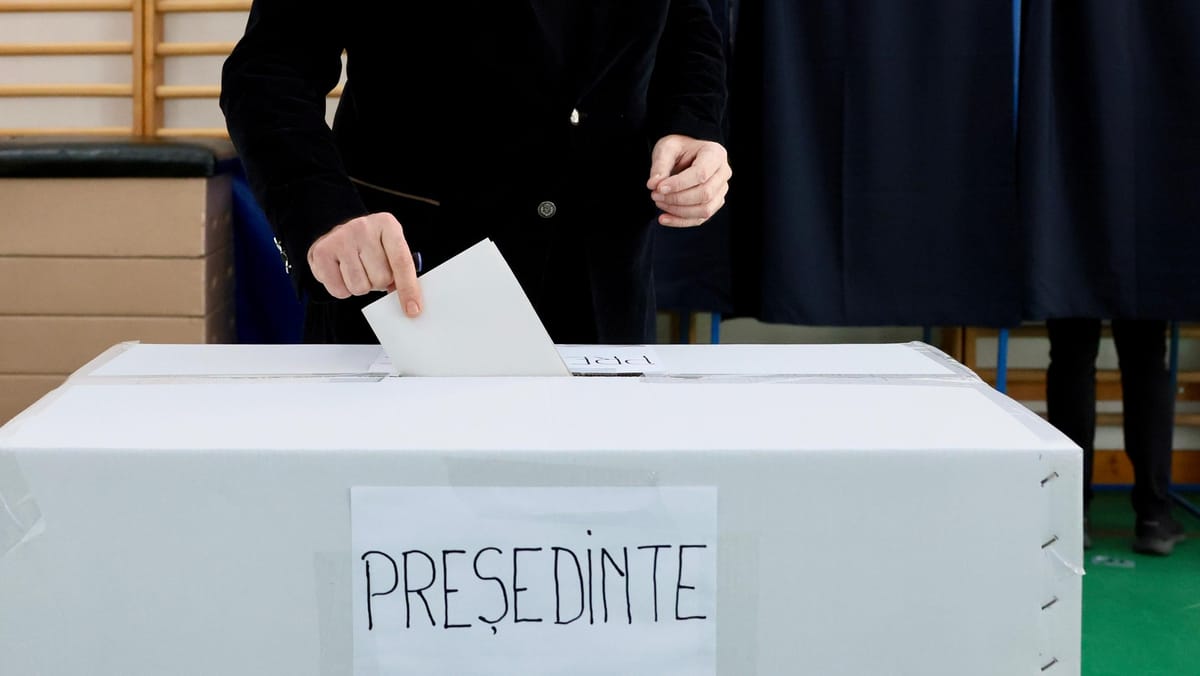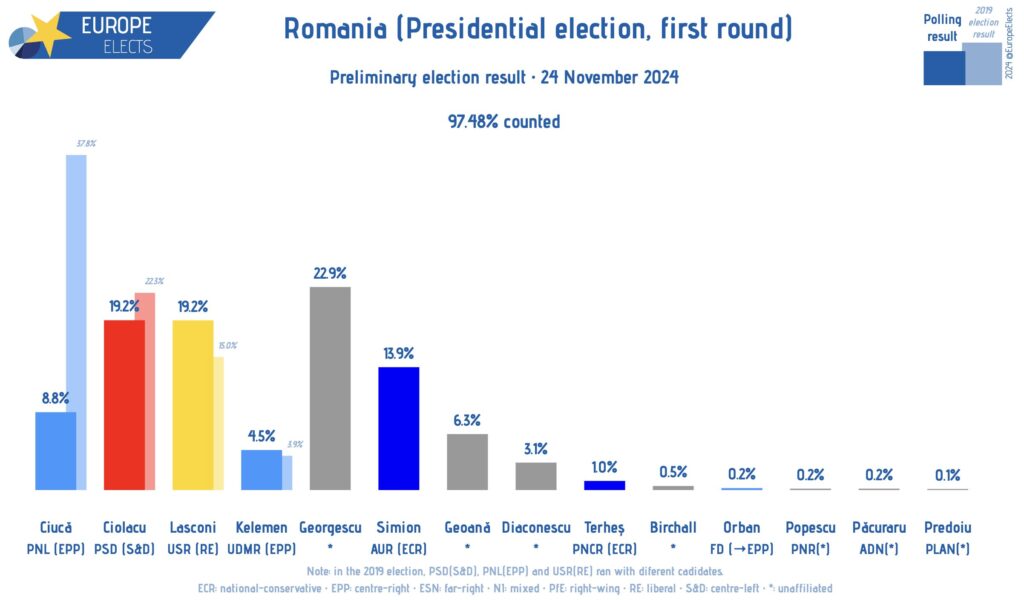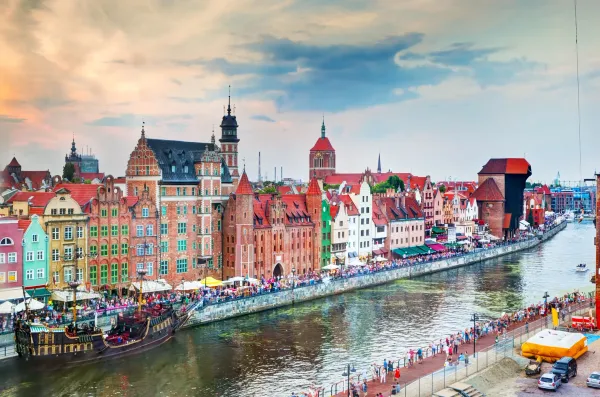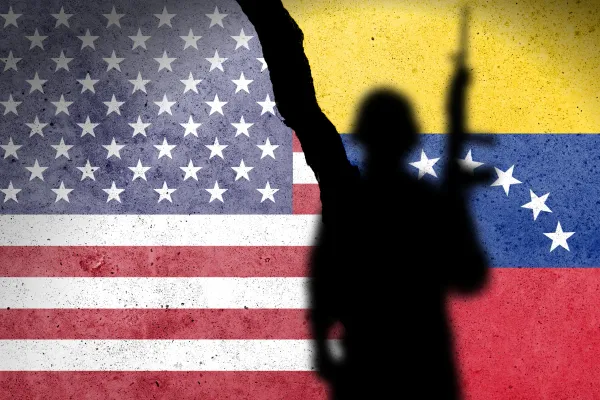
Populist surge in Romanian presidential election sees PM humbled
Romania’s presidential election race delivered a shock result on Sunday, 24 November, as far-right, pro-Russia independent Calin Georgescu won the first round with 22.9% support, with 97.48% of the votes counted. The positive result for Georgescu defied exit polls – and has rocked the country – after the relative newcomer ran on an anti-Western and far-right election ticket.
The Romanian presidency gives the head of state control over defence spending, and Sunday’s result threatens the country’s staunchly pro-Ukraine stance. Political observers called the result Romania’s “worst case scenario”, which gives voters a stark choice in the second, run-off, round due on 8 December.
Liberal pips PM to make second round
Georgescu’s opponent in the second round is likely to be liberal, centre-right Elena Lasconi of the Save Romania Union USR (RE), who very narrowly beat Romanian Prime Minister Marcel Ciolacu of the Social Democrats (PSD) into third place. However, both were on 19.2%, as PSD support fell by over 3 percentage points (pp) and Elena Lasconi’s RE was up 4 pp, with 2.5% of the votes still uncounted.
Far-right populist George Simion of the Alliance for the Unity of Romanians (AUR), of which Georgescu was a member until 2022, meanwhile won 13.9%, reflecting a widespread uptick in support for nationalist candidates.
Other notable performances include UDMR’s Hunor Kelemen at 4.5% (+1 pp) and several new independent candidates, including Mircea Geoana (6.3%) and Cristian Diaconescu (3.1%).
The candidate of the National Liberal Party (PNL) Nicolae Ciuca plummeted to 8.8% (-29 pp), on a catastrophic night for the Christian conservatives.

Struggling with soaring prices, voters move rightwards
Campaigns predominantly focused on economic grievances, including Romania’s soaring cost of living – the country currently has the highest inflation in the EU – and high poverty rate, which the EU has identified as having the bloc’s largest percentage of “at-risk” populations.
Georgescu’s campaign used the Chinese social media platform TikTok to bypass traditional media and connect with voters frustrated with the Romanian political establishment but was dogged by accusations of Russian election interference.
The popularity of Georgescu and Simion highlights the growing popularity of “sovereignist” ideologies that could threaten Romania’s pro-Western alignment and democratic values. The result also reflects a broader European trend of political polarisation and dissatisfaction with mainstream politics, and Romania’s geopolitical trajectory now hangs in the balance.
Romania shares a 400-mile border with Ukraine and since Russia launched its full-scale land war in 2022, it has enabled the export of millions of tons of grain through the port of Constanta and provided military aid including a Patriot air defence system. However, Georgescu, a Romanian national committee of the United Nations Environment Programme representative from 1999-2012, has called NATO’s ballistic missile defence shield in Deveselu, south Romania, a “diplomatic disgrace”.
Threat to Romania’s pro-NATO, US stance
Georgescu’s promised to end Romania’s “subservience” to the EU and NATO—especially regarding support for Ukraine and NATO’s missile defence system— now represent a potential realignment of Romania’s foreign policy. As such, the result jeopardises the country’s reputation as a stable, pro-Western democracy and risks alienating international partners and deterring investors. Next month’s second election round could deepen that divide.
On Sunday evening Georgescu said: “the rich of the system, today, in Romania, have become poorer, and the people, the poor Romanian people, have enriched themselves from this point of view. We have a duty to rebuild Romania and that is the most important.” Calling “the family, the backbone of the Romanian society” Georgescu looked forward to the second round, saying “We were many to vote and will also be many to vote in the second round.”
Lasconi wrote on Facebook on Monday morning: “To all those who voted for me, thank you for your mobilisation and trust. Your vote was not for me, but for the future of you and your loved ones, for whom I promise to do my best.”
Crisis for pollsters
The blame game began as soon as Sunday’s election results rolled in; with Romania’s press, political institutions, and intelligence services accused of inflating Georgescu’s candidacy to weaken Simion, and failing to address Russian election meddling, allowing him to ascend unchecked.
The result also exposed the weakness of exit polls, which had projected Ciolacu as the frontrunner, followed by Lasconi. Voter turnout was consistent with the previous election at 51%.





